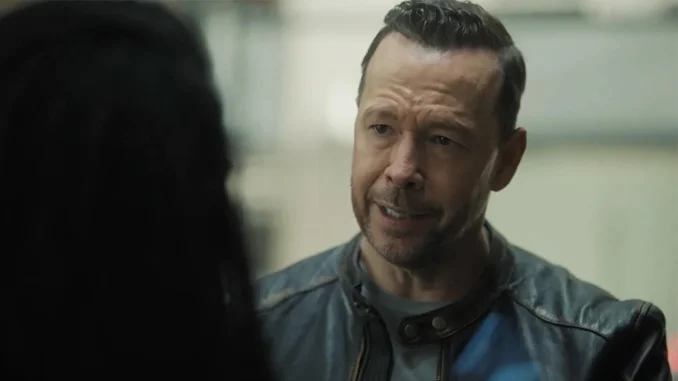
After more than a decade of success with Blue Bloods, CBS officially launched its much-anticipated spinoff, Boston Blue, marking a new chapter for Donnie Wahlberg’s long-running character, Detective Danny Reagan. The series debuted in mid-October 2025, taking over the familiar Friday-night slot that once belonged to its predecessor. Expectations were high, with fans eager to see how the beloved Reagan legacy would translate to a fresh setting. Yet despite strong foundations, Boston Blue arrives with uneven results that reveal both promise and early growing pains.
The new series repositions Danny Reagan from the New York Police Department to the Boston Police Department following personal and professional upheaval. In Boston, he joins a new team led by Detective Lena Silver, played by Sonequa Martin-Green, and becomes entangled in the lives of the influential Silver family, who dominate the city’s law-enforcement hierarchy. This dynamic replaces the Reagan family dinners and the generational framework that made Blue Bloods distinctive, shifting the emotional core of the story from familial unity to adaptation and cultural contrast.
While this premise offers a natural evolution for a seasoned character, the execution lacks the depth that characterized the original show’s balance of police procedural and moral drama. The first episode spends significant time establishing the new city and supporting cast but struggles to find the same rhythm of heart-to-heart family moments that grounded Blue Bloods. Wahlberg delivers his signature intensity and charm, but the narrative’s emotional weight feels diluted without the broader Reagan ensemble.
Another challenge lies in authenticity. Though the series is set in Boston, much of it is filmed in Toronto with select exterior shots in Massachusetts. For local viewers, this occasionally undermines the realism of the setting. The city’s energy, accent, and culture are central to its identity, yet Boston Blue sometimes feels geographically vague, missing opportunities to capitalize on Boston’s unique atmosphere and history.
Recasting also adds complexity. The role of Sean Reagan, Danny’s son, is now portrayed by Mika Amonsen instead of Andrew Terraciano, who played the character throughout Blue Bloods. The change is understandable given the time jump and new creative direction, but it may disrupt the emotional continuity for fans who followed the Reagan family from the beginning. Continuity is one of the key pillars that made the original series resonate, and Boston Blue risks losing that familiarity as it rebuilds its narrative from scratch.
From a technical standpoint, Boston Blue maintains high production values. The cinematography is sleek, and the editing favors dynamic pacing over reflective storytelling. The action sequences are competent, though somewhat formulaic compared to the more measured tone of Blue Bloods. Composer Mark Snow returns to provide a subtle musical through-line that connects both series, offering a sense of continuity even as the visuals change.
Thematically, the spinoff aspires to explore rebirth and reinvention — what happens when a veteran detective must redefine himself outside of his family’s shadow. There is potential for the show to evolve into a character study of aging, legacy, and resilience in law enforcement. However, in its initial episodes, these ambitions remain underdeveloped, giving the impression of a series still searching for its voice.
Critical reception so far has been cautiously positive but far from unanimous. Viewers appreciate Wahlberg’s commitment and the attempt to expand the Blue Bloods universe, yet many note that Boston Blue feels more like a procedural reboot than a genuine continuation. It inherits the brand name and central character but loses much of the moral gravitas that defined its predecessor.
The success of Boston Blue will depend on how quickly it can establish emotional stakes beyond nostalgia. To thrive, it must prove that it can stand as its own show — one capable of telling new stories about duty, loyalty, and personal growth without leaning too heavily on the Reagan legacy. The foundation is there: a charismatic lead, a new city full of potential, and a network committed to its Friday-night procedural brand. But for now, Boston Blue feels more like a transitional experiment than a confident successor.